
The Ministry of Home Affairs is developing regulations to monitor and score cadres, civil servants and public employees monthly and quarterly to help promptly detect difficulties in work and make appropriate adjustments. This not only creates conditions for rewards but also serves as a basis for screening and rearranging personnel, thereby improving the quality of civil servants in the entire government system.
Monthly staff scoring
The Ministry of Home Affairs is seeking comments to complete the draft Decree on the assessment and classification of civil servant quality. Accordingly, the assessment and classification of civil servant quality takes place throughout the working year.
The draft stipulates that all civil servants are monitored and scored monthly and quarterly; the annual classification must be completed before December 15 to be included in the competition and reward records. In cases where the agency or unit has a special nature that has not yet finished its fiscal year or has a long-term mission, this deadline can be extended to January 15 of the following year.
A notable new point is the "transition" mechanism when civil servants are transferred to other positions. The draft requires the old unit to send all evaluation results in the last six months to the new agency, which will be the basis for calculating the average annual score. Thanks to this, the work process will not be interrupted and the situation of civil servants "having no points" when they just receive a new assignment will be avoided.
Civil servants who score 90 points or more are classified as "Excellently completing tasks"; 70 points to under 90 points are "Goodly completing tasks"; 50 points to under 70 points are "Completed"; under 50 points or violating discipline at a serious level are classified as "Not completing tasks". This evaluation system aims for quantitative and transparent criteria instead of qualitative comments as before.
The draft emphasizes three groups of purposes for using monitoring and evaluation results, including: First, in the short term, monthly scores are the basis for timely detection of problems, proposing solutions as well as adjusting the workload. Second, six-month and year-end results are reviewed to arrange and change job positions, and at the same time determine the bonus fund increase - up to 10% of the agency's salary fund. Third, the annual "Excellent" or "Incomplete" classification becomes a measure for planning, appointing, dismissing, transferring, rewarding and disciplining cadres.
The draft also provides detailed regulations on record keeping. Monthly, quarterly and annual evaluation forms; comments from the Party Committee; meeting minutes and related documents must be stored electronically, while paper copies are included in the civil servant's file. This regulation aims to ensure long-term comparison and reduce the risk of loss and unauthorized editing.
Based on results and products to manage staff
Mr. Truong Hai Long, Deputy Minister of Home Affairs, said that one of the new points of the Law on Cadres and Civil Servants 2025 is to improve the effectiveness of evaluating, using and screening cadres and civil servants.
Accordingly, the law stipulates the principles, authority, content, and methods of assessing and classifying the quality of civil servants based on regular, continuous, multi-dimensional, and quantitative monitoring and evaluation using specific criteria associated with progress, quantity, and quality of results and products according to job positions (KPI); using assessment results to implement rewards, additional income regimes, bonuses, or consider placement in lower job positions or dismissal to screen out those who do not meet job requirements from the apparatus; at the same time, specifically stipulates the responsibilities of leaders in managing, assessing, and using civil servants according to their capacity and job positions.

The Deputy Minister of Home Affairs said that the method of managing cadres and civil servants will be transformed according to job positions, with the job position as the center, based on the requirements of the job position and the results and products of performing tasks to recruit, arrange, use, evaluate, train, plan, and appoint cadres and civil servants.
At the conference to review the work of June 2025 and the first 6 months of 2025, and deploy tasks for the last 6 months of 2025, Minister of Home Affairs Pham Thi Thanh Tra said that the Ministry of Home Affairs will apply KPI to evaluate and classify in the last 6 months of the year.
Based on the Resolution, Conclusion of the Central Committee, Resolution of the Government , the work program of the Ministry of Home Affairs and the plan of the Steering Committees, the Minister will assign specific tasks, clearly define the products and results of the work of the last 6 months of the year to the units under the Ministry and simultaneously deploy, supplement with new tasks assigned by competent authorities. When receiving tasks assigned by the Minister, the units also need to continue to assign to each civil servant, public employee and employee of the unit.
According to Minister Pham Thi Thanh Tra, this will be the basis for evaluating and classifying units as well as heads and deputies of heads of units. Applying KPI to evaluate, measure, classify and screen civil servants, public employees and workers of the unit in a general spirit and will conduct KPI evaluation monthly, quarterly, in the last 6 months of the year and for the whole year 2025.
Minister Pham Thi Thanh Tra emphasized: "Currently, under the direction of the Politburo , the Ministry of Home Affairs is advising on the implementation of a number of major issues of the Law on Cadres, Civil Servants and the Law on Public Employees, focusing on the basic and important issues of using and evaluating according to the principle of 'in, out, up, down' for cadres, civil servants and public employees"./.
Source: https://baolamdong.vn/bo-noi-vu-danh-gia-can-bo-bang-kpi-de-co-vao-co-ra-co-len-co-xuong-381722.html



![[Photo] Lam Dong: Close-up of illegal lake with broken wall](https://vphoto.vietnam.vn/thumb/1200x675/vietnam/resource/IMAGE/2025/11/03/1762166057849_a5018a8dcbd5478b1ec4-jpg.webp)

![[Photo] General Secretary To Lam receives Singaporean Ambassador Jaya Ratnam](https://vphoto.vietnam.vn/thumb/1200x675/vietnam/resource/IMAGE/2025/11/03/1762171461424_a1-bnd-5309-9100-jpg.webp)
![[Photo] Prime Minister Pham Minh Chinh receives the Chairman of the Japan-Vietnam Friendship Association in the Kansai region](https://vphoto.vietnam.vn/thumb/1200x675/vietnam/resource/IMAGE/2025/11/03/1762176259003_ndo_br_dsc-9224-jpg.webp)
![[Photo] Fall Fair 2025 and impressive records](https://vphoto.vietnam.vn/thumb/1200x675/vietnam/resource/IMAGE/2025/11/03/1762180761230_ndo_br_tk-hcmt-15-jpg.webp)
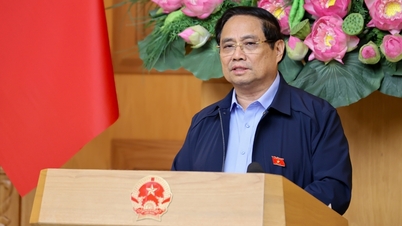



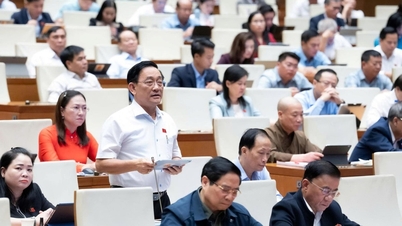
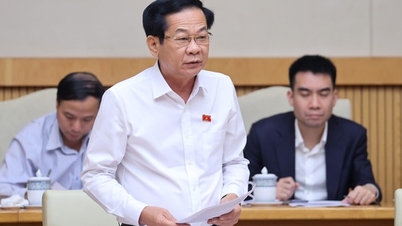






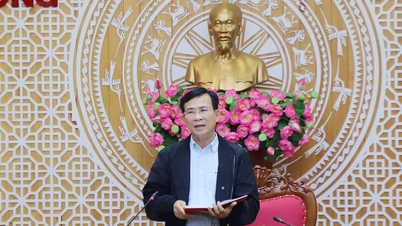














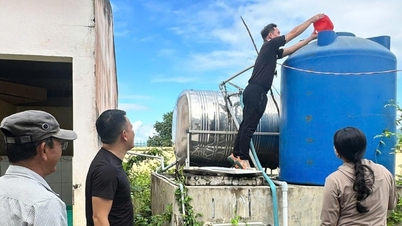



























































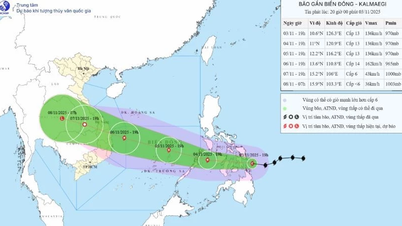














Comment (0)